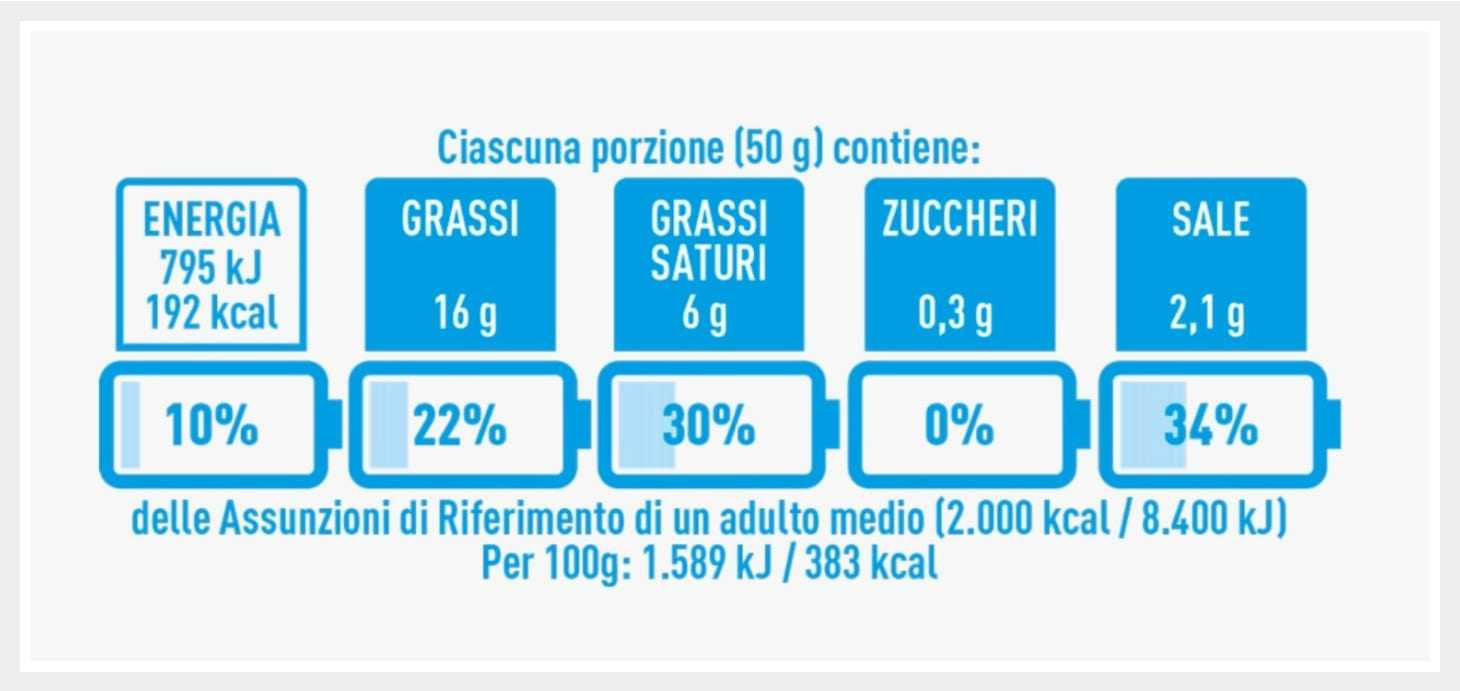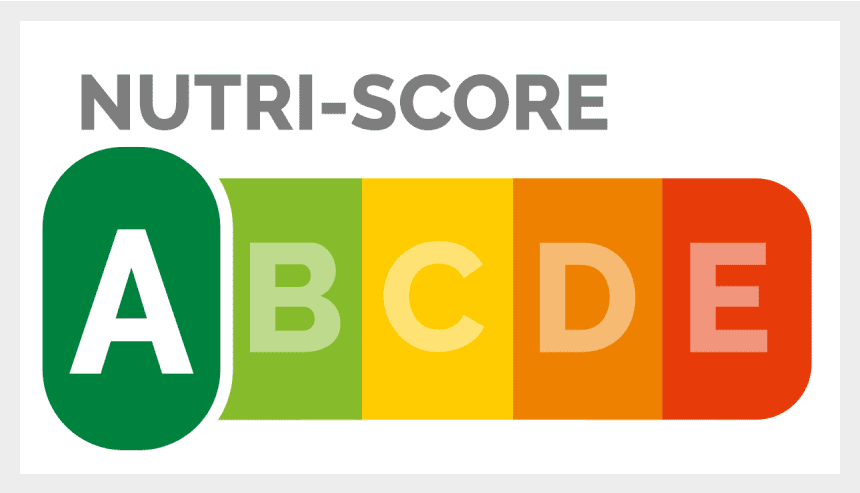The Nutrinform Battery has now become the official Italian alternative to the French-based Nutri-Score food classification system. The Italian Minister of Agriculture Teresa Bellanova signed the act that will allow food producers, including olive oil bottlers, to place the Nutrinform label on their products.
Nutrinform is our alternative to Nutri-Score, but it also is much better. It does not penalize [food], it does not say what is good or what is evil.
“Today we can finally present the Italian optional nutritional logo, Nutrinform, that takes into account the daily nutritional intake in order to facilitate consumers in making a conscious choice, promoting a healthy, varied and balanced nutrition,” said Bellanova.
See Also:Nutriinform and Nutri-Score CoverageThe “daily intake” concept represents one of the main differences between Nutrinform and the French-born Nutri-Score system. While the latter focuses on the stand-alone product on sale, with a label summarizing its characteristics, Nutrinform considers the product within the context of a complex daily diet.

Nutinform Battery labeling system
The Nutrinform presents the calories, fat, saturated fats, sugar and sodium contents in a single food portion and compares the percentage of those contents with what is expected in a healthy daily nutritional intake.
Nutri-Score, on the other hand, classifies food with five colors and five letters (A to E) to give the consumers immediate information on the nutritional characteristics of a single food package.
Bellanova expressed why Nutrinform is considered a better alternative than Nutri-Score by Italian authorities.
See Also:Italy Reiterates Opposition to Nutri-Score Label, Calls for Wider Adoption of Nutrinform“We believe this [food labeling] system puts the citizen center stage and not the global market,” she argued. “It also stimulates the critical abilities of the consumers who should not be misled by colors or images that have nothing to do with Science, and it also defends the unique heritage of the Mediterranean diet.”

Nutri-Score
Referring to the inner workings of the Nutri-Score single-food classification, Bellanova stressed that “diet and nutritional well-being are concepts much more complex than an algorithm.”
“Consumers have the right to be correctly informed, and our food excellencies can not be penalized by traffic lights [placed on food packaging], Bellanova added. “The promotion of a healthy diet requires a multidisciplinary approach. Nutrinform is our alternative to Nutri-Score, but it also is much better. It does not penalize [food], it does not say what is good or what is evil, it informs [the consumers].”
Italian farmers and growers have been strong supporters of the Nutrinform system from the start. After the latest announcement by the Ministry, Massimo Giansanti, president of the Confagricoltura federation, underlined how Nutri-Score “classifies food (…) without considering the quantities normally consumed nor the nutritional diet, and as such penalizing some excellencies of the Mediterranean Diet.” He cited the case of olive oil.
In Spain, the leading olive oil world producer, authorities have formally introduced the Nutri-Score system, but only because “it will not be applied to olive oil products,” Confagricoltura noted — an exclusion to bypass a red-colored classification in the United Kingdom and a grade lower than even rapeseed oil in France.
Those inconsistencies are avoided by the Italian system that has now been signed.
The Nutrinform label is the Italian answer to the misleading logos introduced in Northern Europe.
The Nutrinform Battery system will not be applied to most Italian PGI and PDO products specified the Ministry since additional symbols could prevent the consumer from recognizing such designations.
“The Nutrinform label is the Italian answer to the misleading logos introduced in Northern Europe,” said Daniele Salvagno, head of the Veneto region branch of the Coldiretti farmers association. Nutrinform, he noted, “protects the Made in Italy that the French Nutri-Score or the British traffic lights penalize, as they do with the Mediterranean diet and the best Italian productions PDO and PGI. We are protecting specialties such as the Parmigiano Reggiano and Grana Padano, extra virgin olive oil and the cold cuts that under the pressure from large corporations risked being rejected instead of being promoted within the European Union.”
In a note, Coldiretti underlined how those “discriminatory and incomplete” labeling systems “end up excluding healthy and natural food that we had on our tables for centuries in favor of artificial products for which in some cases the exact recipe is unknown. The risk is to promote carbonated drinks with sweeteners instead of sugar and hurt the long-life elixir extra virgin olive oil, considered the symbol of the Mediterranean diet.”
While Italian producers will be able to use the Nutrinform label on their products, they will not be required to do so because its adoption will not be mandatory.
That approach is at the core of the Italian authority’s effort to make the European Union change its view about Nutri-Score.
“We ask that the European Commission switch to a labeling system on a voluntary basis,” said Bellanova, “a system that can transparently inform consumers without conditioning their choices.”
Which labeling systems do you prefer?








